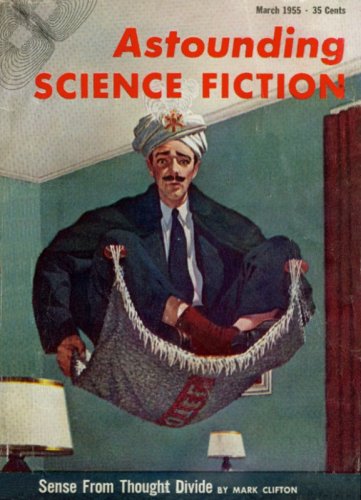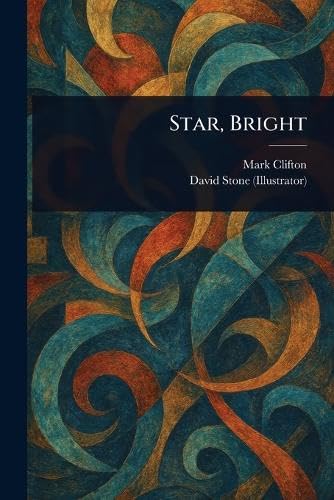
Mark Clifton (1906 - Nov. 1963) was an American science fiction writer. Clifton began publishing in May of 1952 with the often anthologized story "What Have I Done?". Most of his work fits into one of two series. The "Bossy" sequence was written alone, and in collaboration with both Alex Apostolides and Frank Riley. The "Ralph Kennedy" series, which is lighter in tone, was mostly written solo, including the novel "When They Come From Space", although there was one collaboration with Apostolides. Clifton gained his greatest success with his novel They'd Rather Be Right (a.k.a. The Forever Machine), co-written with Riley, which was serialized in Astounding in 1954 and went on to win the Hugo Award, perhaps the most contentious novel ever to win the award. Clifton is also known today for his short story "Star, Bright", his first of three appearances in Horace Gold's Galaxy (July 1952), about a super-intelligent toddler with psi abilities. From Clifton's correspondence we know that Gold "editorially savaged" the story, which appeared in severely truncated or altered form. The story has been compared favorably to Kuttner and Moore's "Mimsy Were the Borogoves", which was published in Astounding nine years earlier. Clifton worked as a personnel manager during his life and interviewed close to 100,000 people. This experience formed much of Clifton's attitude about the delusions people entertain of themselves, but also the greatness of which they are capable.
Series
Books
A Woman's Place
1955

Star Bright & Other Science Fiction
2004

When They Come from Space
1961

Sense From Thought Divide
2007

We're Civilized!
2011

Do Unto Others
2010

The Science Fiction of Mark Clifton
1980

Eight Keys to Eden
1960

The Kenzie Report
1953

The Second Golden Age of Science Fiction Megapack
2014

They'd Rather Be Right
1954

Star, Bright
1952

